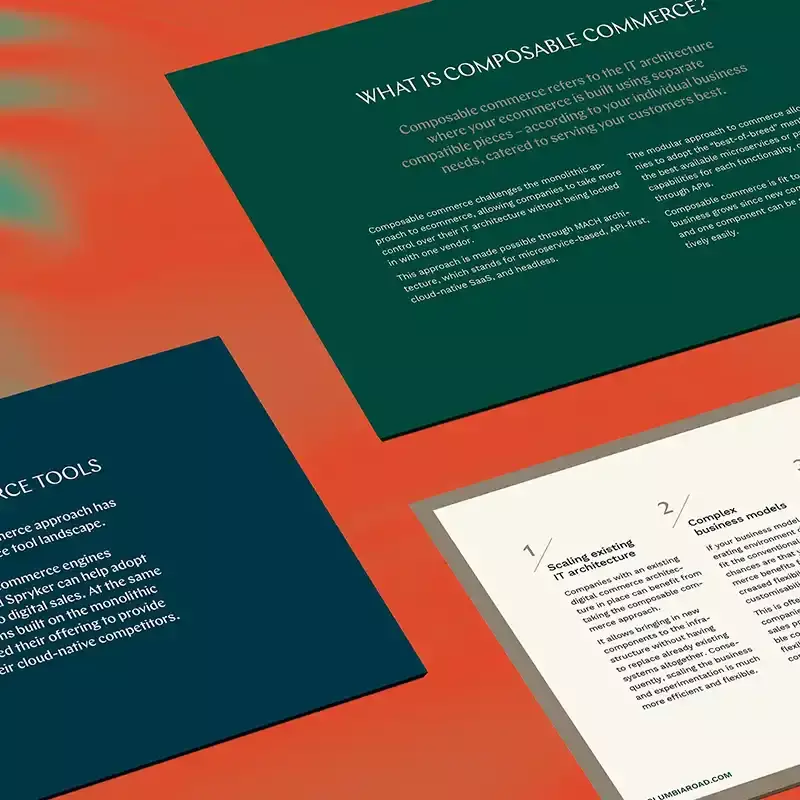The Data Handbook
How to use data to improve your customer journey and get better business outcomes in digital sales. Interviews, use cases, and deep-dives.
Get the bookAs a tech consultant, I interact with AI on a daily basis. Most of us use AI in various forms, such as Google's suggestions when writing an email, typing in a document, or even generating search query predictions. "Googling" has long been considered a superpower that enhances our skills by helping us find information quickly and efficiently. The landscape is changing, and we're simply seeing the start of a new phase in AI augmentation.
Unlocking the existing potential of AI
As a technology consultant, I am continually seeking ways to expand my skill set and streamline my work processes. In December 2022, I began experimenting with ChatGPT, a powerful AI tool that has since become an integral part of my work. This technology has not only changed the way I gather information but also dramatically altered the way I create various outputs, from written content to code snippets.
ChatGPT offers a diverse range of applications, making it an indispensable tool for technology consultants, even for those who may not be well-versed in the intricacies of tech.
It has helped me with:
- Generating boilerplate code: ChatGPT simplifies the process of creating code templates for integrations, such as with ecommerce platforms like Shopify. This saves me time and energy, allowing me to focus on more complex tasks.
- Explaining concepts: The AI tool breaks down intricate ideas in areas like React, Go, and other technologies, making them more accessible and easier to understand. It's also much more efficient than browsing multiple websites and trying to summarise the information yourself.
- Enhancing written communication: ChatGPT can help refine presentation slides by condensing text or suggesting alternative wording, which ultimately leads to clearer, more impactful communication.
- Boosting SQL productivity: By providing guidance and explanation on constructing queries, the AI tool empowers users to become more efficient and proficient in SQL, regardless of their initial skill level.
Aside from these practical applications, ChatGPT also offers some fun and creative uses, such as:
- Generating "Ted Lasso Lorem Ipsum": This AI-produced placeholder text adds a touch of humour to early project stages, making the development process more enjoyable.
- Hosting "What would ChatGPT say" sessions: Engaging with the AI by asking random questions can lead to fascinating and unexpected insights, sparking creativity and curiosity.
- Planning trips with AI-generated suggestions: ChatGPT can offer personalised recommendations for your next vacation, taking some of the stress out of travel planning.
Overall, ChatGPT has proven to be a valuable resource in augmenting my skills and enhancing my work as a technology consultant. In certain situations, it even substitutes for human interaction, particularly when brainstorming ideas or seeking input on effective communication strategies. With its diverse applications and user-friendly interface, ChatGPT opens up a world of possibilities for technology consultants and non-technical professionals alike.
Learning by Doing - with ChatGPT and the GPT-4 Model
My learning approach typically involves identifying a goal, selecting a tech stack, and working towards achieving that goal. I guess it’s a form of learning by doing. This hands-on methodology has guided me through various projects, both small and large, throughout my career. Some notable examples include developing web applications with React, Svelte, and building microservices with Go & Python.
A small but recent personal project involved creating a minimalistic, easy-to-publish website using Hugo, which is written in Go. By setting clear objectives and choosing the right tools, I have consistently managed to learn and grow as a developer.
What excites me now is the potential of AI in learning how to code. Imagine AI as an assistant that helps you build the first version of a project using an unfamiliar tech stack. For instance, I've developed hybrid mobile apps using Ionic and React Native but have yet to build a native app. I came across a tweet where someone enlisted GPT-4 to help build a fully functional SwiftUI (native iOS app) by generating all the necessary code.
This innovative approach raises the question: can AI accelerate the learning process for new technologies? And even better, can it make "learning by doing" more accessible for those earlier in their development careers? The answer seems to be a resounding "yes."
Consider, for example, how AI can assist you in learning new programming languages. By providing code snippets, explanations, and even entire project structures, AI can guide you through the learning process more efficiently. As a result, you'll be able to grasp the nuances of new languages and frameworks more quickly.
Another example is how AI can support you in exploring unfamiliar APIs or libraries. By suggesting “optimal implementation methods” and answering questions about specific functionalities, AI can help you integrate new components into your projects with ease.
Embrace AI as a powerful ally in progressing your development career faster. ChatGPT and other AI tools have the potential to augment your skills, improve your productivity, and help you learn new technologies with ease. The future is here, and it's time to harness its potential. With AI by your side, there's no limit to what you can achieve in your development journey.
To learn how I utilised AI to build my first native iOS app using SwiftUI, check out my experience here.
The Data Handbook
How to use data to improve your customer journey and get better business outcomes in digital sales. Interviews, use cases, and deep-dives.
Get the book



